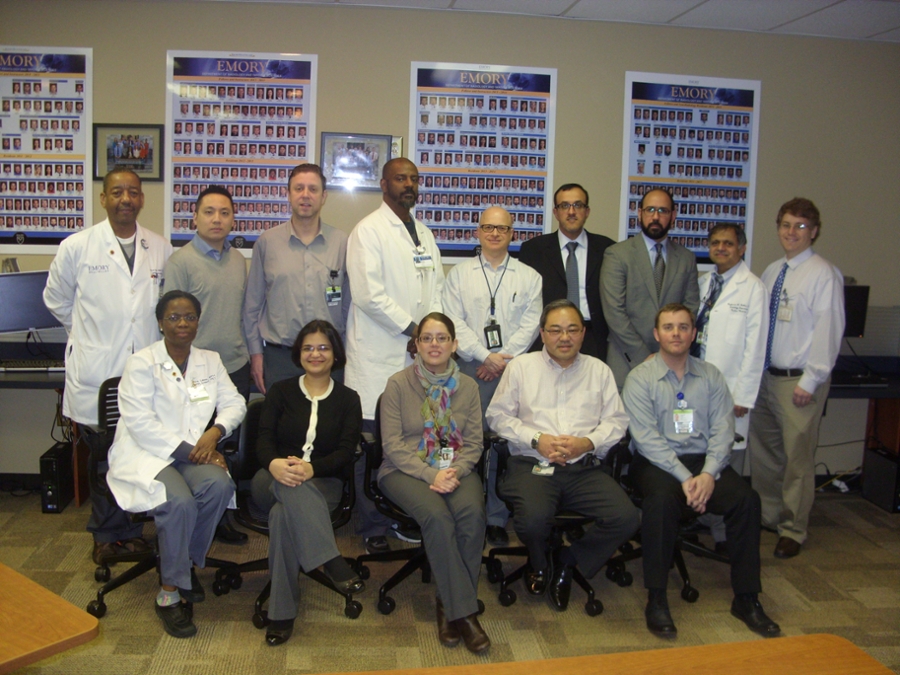Benefits from a Positive Return
April 2, 2015

At academic institutions students and trainees are an important form of investment, and as with other types of investments it is always gratifying to see a positive return. In the case of medical trainees, a positive return also has a beneficial impact on society as a whole.
Dr. Fahad Marafi and Dr. Abdulredha Esmail joined the Emory Department of Radiology and Imaging Science Division of Nuclear Medicine and Molecular Imaging in 2007 to receive training in PET/CT technology, imaging center setup and diagnostic interpretation. After completing their training, they returned to the Kuwait Cancer Control Center (KCCC), a 200-bed hospital complex in Shuwaikh, Kuwait that was founded in 1968 and functions as a comprehensive cancer center run by the Kuwait Ministry of Health. The KCCC is dedicated entirely to providing cancer care across Kuwait and the surrounding region and treats over 2,000 new cancer patients each year.
Upon their return to KCCC, Drs. Marafi and Esmail were instrumental in developing a state-of-the-art PET/CT center, the first and still only center of its kind in Kuwait, which has had a significant positive impact on cancer management in Kuwait and the surrounding region. In addition to routine types of PET imaging, Drs. Marafi and Esmail developed the capability of KCCC to provide other advanced PET/CT techniques, such as Ga-68 imaging with DOTA-NOC for neuroendocrine tumors and Ga-68 PSMA imaging for prostate cancer.
In January 2015, we were delighted that Drs. Marafi and Esmail accepted our invitation too return to Emory to share their experiences with our staff and residents,Their experience and work at KCCC represents a stellar example of return on educational investment.



